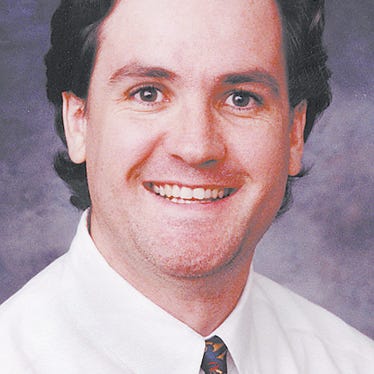
As of late March, USDA officials tasked with carrying out President Bush’s farm bill wishes were unwilling to bend on several issues. Raising taxes and large program funding increases are particularly unacceptable. Legislators have been warned that any bill produced must hew to the president’s desires or it will be vetoed.
If the USDA officials are to be believed, it is Congress — still moving slowly on producing a bill despite planting season arriving in the South — that is most to blame for the new bill’s lateness.
Further, the Bush administration claims measures Congress has come up with to fund the new farm bill are shaky. Defraying costs by only funding a portion of the bill’s life (also known as “timing shifts”) are among the shakiest.
“We do have concerns on what Congress is labeling ‘timing shifts,’” said Chuck Connor, USDA deputy secretary, during a March 18 press conference. “These are really ways to get around the budget and to spend more money than what Congress has budgeted for the farm bill. This causes us concern.”
The true cause of the Bush administration’s focus on the farm bill budget is unknown, its explanations lacking. When asked to elaborate on this, not for the first time, Connor referenced the countrywide farm bill listening tour embarked on by former USDA head Mike Johanns several years ago. Connor pointed to an absence of testimony from tax-increase advocates at the events as proof that rural, agriculture-heavy America doesn’t want additional taxes to pay for the new farm bill.
“As we traveled the countryside talking to farmer after farmer about the farm bill, not once did they suggest that the accounting…ought to be done in this kind of way. You know, farmers are about as honest and straightforward as any people you’re ever going to encounter in this country. And I believe they want their farm bill to be truly accounted for, the real cost of the farm bill to be stated, not to be hidden through some kind of a scorekeeping budget game.
“So when you’re talking about timing shifts, hiding money, smoke and mirrors — however you want to label it — this is something that causes us concern, and I believe causes a lot of farmers concern out there, too.”
Back in the fall of 2005 the listening tour hit Little Rock, Ark., where Connor stood in for Johanns. Arkansas Sen. Mark Pryor introduced Connor and asked him not to waste the crowd’s time. “Quite frankly, if you’re not going to listen and the (Bush) administration knows what it’s going to do with the (2007) farm bill anyway, we should just pack up and go home.”
A “raw fact,” said Pryor, is Bush “wouldn’t be president today had it not been for farmers across this country. He wouldn’t. He carried rural America in 2000 and 2004 and I sincerely hope, if for no other reason, he’d show a debt of gratitude to the people who sent him to the White House — that he’d remember them.”
In response, Bush might claim fiscal responsibility trumps gratitude. However, such an answer will have worn thin in the face of the president’s willingness to run up huge, non-agriculture deficits. With the war in Iraq costing U.S. taxpayers an estimated $4,000 per second — and set, according to Nobel Laureate economist Joseph Stiglitz, to conservatively cost $3 trillion total — it is difficult to comprehend the Bush administration’s tight grip on farm bill funding.
In such a context, $10 billion is negligible, insist farming advocates. And, to make their point, it isn’t necessary to juxtapose only war funding with agriculture spending.
“I have to tell you the (Bush) administration complicated the whole thing over $10 billion in a five-year farm bill — $10 billion in extra money!” said an incredulous Tom Buis, president of the National Farmers Union, during a March 18 press conference.
Buis then pointed to a White House plan to purchase a new, and over-budget, presidential fleet of helicopters at a cost topping $11 billion. If funds are so tight, he suggested, “cancel those brand-new helicopters — 28 of them. It isn’t a question of whether there’s enough money. It’s a question of priorities on how it’s spent. I think the health of rural America and nutrition programs and other things are more important than a new fleet of presidential helicopters.”
Asked about the new helicopters, Arkansas Sen. Blanche Lincoln says there are “a multitude” of similar “inexcusable” situations. “Think about it: we’re spending $15 billion a month in Iraq. We just had a huge deployment from Arkansas — 3,200 in the 39th Infantry Brigade are deploying, or have been deployed already. For over half of them it’s their second deployment to Iraq. These are Guard and Reserve — citizen soldiers, folks working hard in small businesses to take good care of their families. I’m sure some have been working in ag-related industries.”
While all agree that soldiers must be properly funded and cared for both in the field and once they’re again stateside, the senator wonders what kind of home they’ll return to. “If we give up on maintaining and building a strong country at home, then what have we said to them?”
When confronted with the Bush administration’s shifting standards regarding government spending, USDA officials frequently use Johanns’ listening tour as a default explanation.
“I think … that now is the time,” said current Agriculture Secretary Archie Schaefer on March 18. “The president has put us on a course to balance the budget in 2012. We think that’s important. And he’s stood firm this year on whether we’re going to increase government, increase scope, increase costs, etcetera, etcetera…
“He’s come to the conclusion that we’re not going to expand (the new farm bill). And you know why? Because when we went across this country and talked to people all over about what we want in new farm bill legislation, nobody said, ‘Hey, let’s build government bigger and better and spend more money to do so and take it out of my pocket to fund it.’”
Admittedly, no one at the tour stops may have uttered exactly the preceding sentence. However, it is undeniable that most testifying asked for additional, or expanded, USDA programs and/or rural development — things everyone intrinsically understands cost more money.
email: [email protected]
About the Author(s)
You May Also Like






